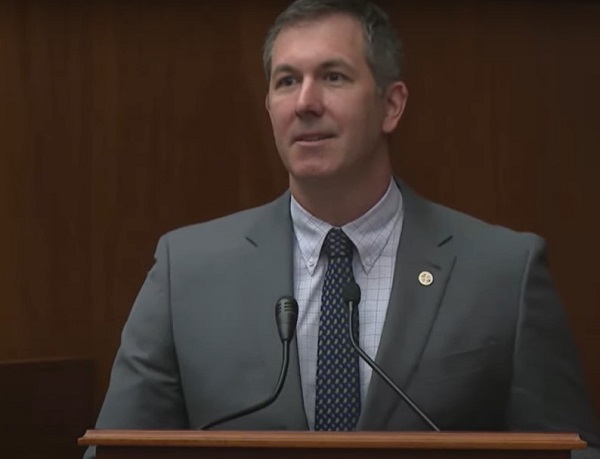ANNAPOLIS, MD—Baltimore County Executive Johnny Olszewski on Monday announced that his administration’s robust legislative agenda for the upcoming Maryland General Assembly’s 2024 Legislative Session will include a continued focus on issues of housing, securing funds for critical community projects, modernizing regional infrastructure, and supporting public safety.
“As we prepare to begin 2024, Baltimore County remains focused on working with our leaders in Annapolis to deliver the results that our families and communities deserve,” Olszewski said. “Our agenda this year is focused on continued progress to ensure families can access high-quality attainable housing, making our government more accountable and transparent to the people we serve, and securing critical investments in long-awaited projects so that we can further strengthen our neighborhoods and build a better Baltimore County for us all.”
The Olszewski administration’s Maryland General Assembly (MDGA) 2024 legislative agenda will include:
Secure Capital Investments for Community Projects
Baltimore County continues to focus on completing significant capital projects to better serve children, working families, seniors, and growing communities. In pursuit of these vital efforts, Baltimore County will advocate for state capital funds for major projects including:
- Construction of a new Wilkens Police Precinct facility and a replacement for the outdated Essex Police Precinct facility,
- Complete construction of a new North County Senior Center to support Baltimore County’s rural senior population,
- Trail improvements at Oregon Ridge Park, and
- A reimagined Randallstown Library and community multi-use site.
Provide Equitable State Funding for Transportation
The Baltimore region’s transportation infrastructure has been underinvested for decades and the proposed cuts in the Maryland Department of Transportation’s (MDOT) recently updated Consolidated Transportation Program (CTP) will exacerbate historic inequities and adversely impact residents’ access to safe, reliable transportation.
Baltimore County will continue to advocate for equitable transportation funding for the Baltimore region, including a revised, transparent, and population-based LOTS formula for local transportation systems like the Towson Loop, restored funding for the long-awaited Dolfield Interchange project, support for MTA and MARC train service, and beyond.
Secure Funds for Local Substance Use and Opioid Treatment Programs
In 2019, Maryland became the first state in the country to require local detention centers to provide medication assisted treatment (MAT) to individuals in correctional facilities. While this program is an important public health tool to help combat substance use disorder and the disease of addiction among incarcerated individuals, the state of Maryland does not provide financial support for implementation of this program. Baltimore County will advocate for securing much-needed resources for opioid addiction treatment in correctional facilities.
Expand Attainable Housing Opportunities
Removing obstacles and creating opportunities for more attainable housing remains a top priority. During this legislative session, Baltimore County will support efforts to expand tenants’ rights, help secure financial assistance for development in qualified low-income communities, and support incentives for development of attainable housing units.
Keep Communities Safe
Baltimore County will work in partnership with law enforcement officials to increase firearm safety by supporting efforts to and promoting new policies to help reduce auto thefts.
Improve Regional Infrastructure and Modernize Shared Services
The Olszewski administration plans to continue working with the Moore-Miller administration, legislative leaders, and regional partners following completion of the Baltimore Regional Water Governance Task Force’s final recommendations in order to modernize the region’s water and wastewater utilities and help ensure residents can efficiently, equitably, and sustainably receive high-quality water and sewerage services for decades to come.
Improve Transparency in Education Funding
Since taking office, the Olszewski administration has done more than ever before to make Baltimore County’s government more open and accessible. In that spirit, Baltimore County will again support efforts to increase transparency and reporting of local school spending to ensure County governments can better understand how significant County tax dollars are deployed within our schools
In addition, the administration plans to work in partnership with state leaders and community stakeholders on numerous additional topics including, regional transportation investments, juvenile justice, expanding workforce programs, and more.


